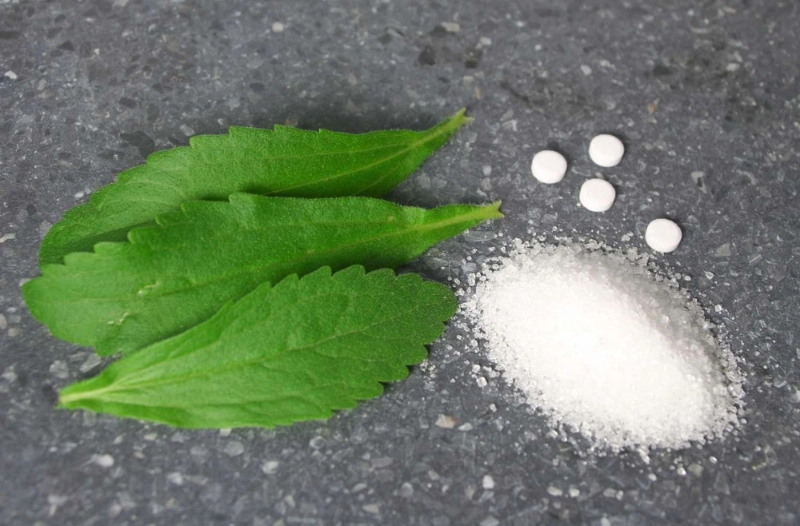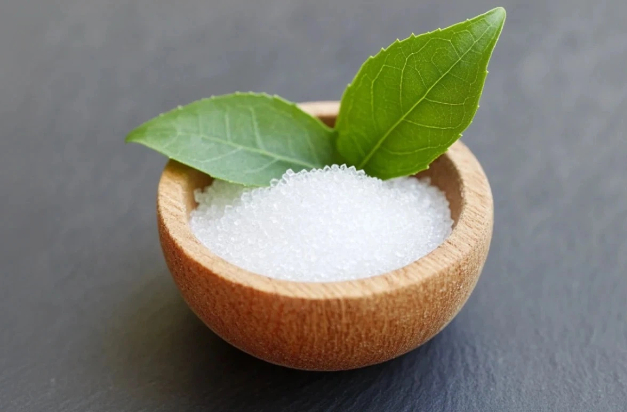







Content Menu
● FDA Status and Safety Classification
● Scientific Research: Is Stevia Toxic?
● Additives and Blended Ingredients: Hidden Risks?
● Effects on Liver, Kidney, and Gut Health
● Recent Advances: Anti-Cancer Potential of Stevia
● Stevia in Veterinary Use and Safety
● Recommendations for Safe Stevia Use
>> 1. Is pure stevia toxic to humans?
>> 2. Can stevia raise blood sugar levels?
>> 3. Does stevia cause cancer or mutations?
>> 4. Are stevia blends with erythritol safe?
>> 5. Can pets consume stevia?
Stevia, a natural sweetener derived from the leaves of the Stevia rebaudiana plant, has surged in popularity as a sugar substitute in foods and beverages worldwide. Its appeal lies in being a calorie-free, natural alternative to sugar, especially for those seeking healthier options or managing conditions like diabetes. But with growing consumption, many question: Is Stevia toxic? This article delves deep into the science, regulations, and realities behind Stevia's safety, potential risks, and health effects.

The sweetness of Stevia comes mainly from compounds called steviol glycosides—primarily rebaudioside A and stevioside—that are extracted and purified from the plant's leaves. These compounds are intensely sweet, about 200–400 times sweeter than sugar, but with virtually zero calories.
The U.S. Food and Drug Administration (FDA) has approved only highly purified steviol glycosides as "Generally Recognized as Safe" (GRAS) for use as sweeteners. This regulatory status allows their inclusion in foods and beverages. However, raw stevia leaves or crude extracts have not been approved for consumption due to insufficient safety data.
Stevia products that list ingredients such as "stevia extract" or "rebaudioside A" are generally considered safe. Consumers are advised to avoid products containing whole stevia leaves or unrefined extracts.
Research indicates that pure steviol glycosides consumed in moderate amounts are not toxic and have minimal side effects for most people. However, some studies identify potential concerns:
- Gastrointestinal Issues: Some users report nausea, bloating, or diarrhea, especially with stevia products blended with sugar alcohols (like xylitol) which can upset digestion.
- Blood Pressure Effects: Stevia has mild blood pressure-lowering properties. Individuals with low blood pressure or those on blood pressure medication should use it cautiously.
- Hormonal Effects: Preliminary studies show steviol glycosides may influence hormone-related pathways in cells, but conclusive human data is lacking.
- Genotoxicity and Carcinogenicity: Some older studies raised flags about potential mutagenic effects in lab animals at high doses, primarily from stevioside converting to steviol metabolites. However, comprehensive carcinogenicity studies found no increase in cancer risk in animals. Further research is recommended to fully exclude long-term risks.
Many stevia products combine the sweetener with additives like erythritol or maltodextrin to enhance bulk and sweetness. While pure stevia has a glycemic index near zero, these additives can raise blood sugar levels or cause digestive distress.
Notably, erythritol, commonly mixed with stevia in sweetener blends, has been linked in recent research to increased risks of blood clotting, heart attack, and stroke, especially in individuals with existing cardiovascular risk factors.
Consumers should carefully check ingredient lists to know what accompanies stevia in a product.

Animal studies have revealed that chronic high-dose stevia consumption might stress liver and kidney functions, indicated by elevated enzyme levels and tissue changes. However, these effects are mainly from experimental conditions far exceeding typical human use.
In human studies, stevia's impact on gut microbiota appears minimal over months of consumption, though more long-term data is needed.
Emerging research in 2025 highlights promising new developments in stevia's health effects beyond sweetness. Studies from Hiroshima University in Japan demonstrated that fermented stevia leaf extract exerts selective cytotoxicity against pancreatic cancer cells, sparing healthy kidney cells. This fermentation process with beneficial bacteria (Lactobacillus plantarum SN13T) transforms stevia compounds, enhancing bioactivity by producing metabolites such as chlorogenic acid methyl ester, which encourages cancer cell death.
While these findings are preliminary and based on laboratory studies, they suggest stevia may have untapped therapeutic potential as an anticancer agent. Further animal and human trials are underway to better understand dosing and broader effects.
Stevia and its derivatives are gaining attention as feed additives in livestock. Studies report that stevia extracts, particularly those rich in chlorogenic acid and analogues, enhance livestock performance, gut health, and antioxidant capacity without clinical signs of toxicity or mortality in tested animals like rats.
Extensive toxicity testing including acute oral, subchronic, genotoxicity, and teratogenicity assays on these extracts confirm their safety at very high doses, offering reassurance for future agricultural applications.
- Choose products labeled as containing highly purified steviol glycosides.
- Avoid crude stevia leaves or non-purified extracts.
- Consume in moderation; respect the Acceptable Daily Intake (ADI) set by health authorities (about 4 mg/kg body weight of steviol equivalents).
- Be cautious if pregnant, breastfeeding, or having chronic health conditions.
- Read labels to avoid blends with potentially harmful additives like erythritol if at cardiovascular risk.
Stevia, when purified and consumed within recommended limits, is generally safe and non-toxic for humans. Most adverse effects arise from additives used in commercial blends rather than stevia itself. Though some preclinical studies suggest potential risks like mild digestive issues or hormonal impacts, strong evidence of toxicity or carcinogenicity is lacking. Recent advanced research even hints at stevia's potential as an anticancer agent through fermentation-enhanced bioactive compounds. Consumers should choose high-quality purified stevia products, monitor their intake, and consult healthcare providers if they have specific health concerns. Continued research will further clarify the complete health profile of this natural sweetener.

No, purified stevia glycosides are generally safe and non-toxic when consumed in moderation.
Pure stevia has a negligible effect on blood sugar, but blends with other sweeteners may raise blood sugar.
No clear evidence shows stevia causes cancer; however, some studies suggest further research is needed on mutagenic potential.
Erythritol, often combined with stevia, may increase risks of heart attack and stroke for susceptible individuals.
Stevia is non-toxic to dogs, cats, and horses according to veterinary sources.
[1](https://www.foodnavigator.com/Article/2025/07/29/study-finds-fermented-stevia-kills-pancreatic-cancer-cells/)
[2](https://www.frontiersin.org/journals/veterinary-science/articles/10.3389/fvets.2025.1646665/full)
[3](https://ecancer.org/en/news/26775-stevia-leaf-extract-has-potential-as-anticancer-treatment-researchers-find)
[4](https://nypost.com/2025/08/04/health/stevia-could-hold-untapped-potential-to-fight-cancer-study/)
[5](https://www.sciencedirect.com/science/article/pii/S2666154325003515)
[6](https://www.hiroshima-u.ac.jp/en/news/91640)
[7](https://pubmed.ncbi.nlm.nih.gov/40978487/)
[8](https://www.sciencedirect.com/science/article/pii/S3050843625000368)
